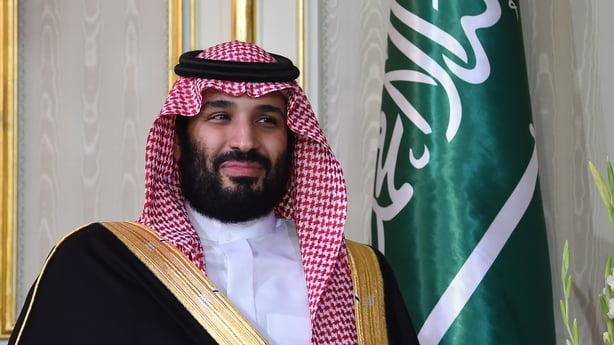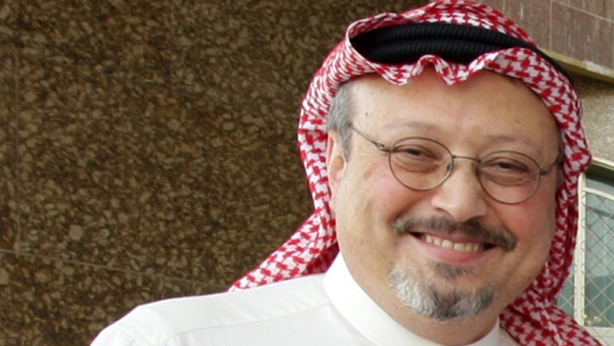Saudi Arabia's new foreign minister has voiced defiance in the face of international outrage over critic Jamal Khashoggi's murder, rejecting the kingdom was in crisis and his predecessor was demoted.
"The issue of Jamal Khashoggi... really saddened us, all of us," Ibrahim al-Assaf told AFP, a day after he was appointed foreign minister in a government reshuffle.
"But all in all, we are not going through a crisis, we are going through a transformation," he added, referring to social and economic reforms spearheaded by Crown Prince Mohammed bin Salman.
The prince, heir to the Saudi throne, has faced intense international scrutiny over the 2 October murder of journalist Khashoggi in the kingdom's Istanbul consulate - which critics say has left the oil-rich Gulf nation diplomatically weakened.
Assaf, a former finance minister who was detained last year in what Riyadh said was an anti-corruption sweep, replaced Adel al-Jubeir as foreign minister in the sweeping government shake-up ordered by King Salman.
Jubeir, who sought to defend the tainted government internationally after Khashoggi's murder, was appointed minister of state for foreign affairs, which was widely seen as a demotion.
"This is far from the truth," Assaf said.
"Adel represented Saudi Arabia and will continue to represent Saudi Arabia... around the world. We complement each other."
Saudi Arabia's King Salman ordered the sweeping government reshuffle, replacing key security and political figures including the foreign minister, as the kingdom grapples with the international fallout over Jamal Khashoggi's murder.
The surprise shake-up saw the appointment of new ministers of the powerful National Guard, information and education, as well as the head of a new space agency, but the energy and finance ministries were unaffected despite an economic downturn.
The revamp left untouched the authority of Crown Prince Mohammed bin Salman, the de facto ruler facing intense international scrutiny over the murder of Mr Khashoggi, which tipped the kingdom into one of its worst crises.

In other significant appointments, Prince Abdullah bin Bandar was named chief of the powerful National Guard, and Musaed al-Aiban was appointed the new national security adviser.
The reshuffle would help the crown prince further "consolidate power" as many of those promoted were his "key allies", tweeted Ali Shihabi, head of the pro-Saudi think-tank The Arabia Foundation.
In other changes, Turki al-Shabanah, an executive at broadcaster Rotana, was appointed as the new information minister, replacing Awwad al-Awwad, who was named as an advisor to the royal court.
Turki al-Sheikh, a close aide to the crown prince, was removed as the head of the kingdom's sports commission and appointed entertainment authority chief, while Ahmed al-Khatib was named tourism authority chief.
The king also ordered the creation of a national space agency to be led by one of his other sons, Prince Sultan bin Salman, a former astronaut.
The energy, economy and finance ministries were left untouched even as it faces a sharp fall in crude prices that has generated renewed uncertainty over Prince Mohammed's Vision 2030 reform programme for a post-oil era.
The reshuffle comes as Saudi Arabia seeks to repair its tarnished image after Mr Khashoggi's murder.

"You cannot delink Khashoggi from any developments, though government reshuffles are customary every four years," said Mohammed Alyahya, a senior fellow at the Gulf Research Centre.
"The reshuffle saw the appointment of some young princes, but also veteran statesmen to positions of power. There is an effort to balance the fast pace of reform with bolstering government procedures and institutions."
Saudi Arabia last week said it was creating government bodies to boost oversight of its intelligence operations, in the wake of the murder.
The kingdom has said Mr Khashoggi was killed inside its Istanbul consulate in a "rogue operation" led by Saudi agents, but the CIA reportedly concluded that Prince Mohammed ordered his assassination.
The murder has battered the reputation of the 33-year-old crown prince, who controls all major levers of power.
He is set to maintain his political and security posts after the reshuffle, including that of defence minister.

